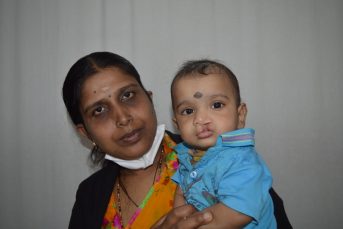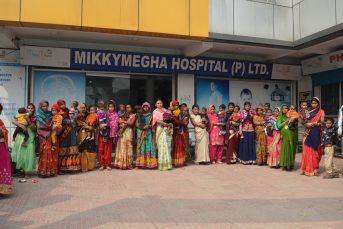A land of contrasts
An emerging economic power—and at the same time, children go hungry. According to the 2024 Global Multidimensional Poverty Index, 234 million Indians live in poverty. In the current Global Hunger Index, India ranks 105th out of 127. Around 14 percent of the population suffers from hunger. Children are particularly affected: 18.7 percent are undernourished, and 35.5 percent are stunted.
Awareness is urgently needed
In many places in India, superstition still shapes daily life. When a child is born with a cleft lip and/or palate, parents may view it as fateful punishment for their own wrongdoing. Fathers leave their families because they cannot bear the shame. Mothers are ostracized for supposedly bringing a curse upon the family. Out of shame, children are often hidden and live in isolation. Most parents do not know that clefts can be corrected with surgery. Only long-term, sustainable support combined with targeted awareness efforts can bring change. Especially important are recruiting key multipliers—e.g., hospital and school staff—as well as direct outreach to the public.
A vast country, a vast need
With an estimated 40,000 children born each year with cleft lip and/or palate—and many untreated cases—the need for support is immense. Since our work began in 2003, India has become our largest project country in terms of the number of sites and surgeries. Since 2015, our partner organization ABMSS (Akhila Bharatha Mahila Seva Samaja), based in Bengaluru, has coordinated our cleft work in India and serves as the point of contact for roughly 30 medical teams and partner hospitals.
Comprehensive cleft care
“Comprehensive Cleft Care” is the term used in India for holistic cleft treatment. This approach demands a high level of organization from the treating team and is therefore offered only at selected Indian cleft centers. There, our patients have access to all relevant medical disciplines: NAM as a preoperative therapy, speech therapy, ENT, orthodontics, and dentistry. Approximately 70 percent of the children presented to us cannot be operated on because they are undernourished. They are gradually strengthened with specialized nutrition so that the surgery—crucial for normal development—can take place as soon as possible.















